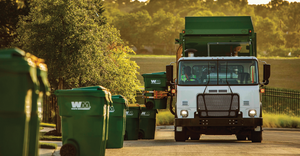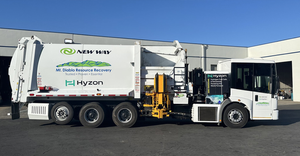Podcast Highlights Domestic Recycling Under National Sword
Since there is no national recycling policy in the U.S., this shift from China has thrown the U.S. recycling industry for a loop, according to the podcast.
A newly released podcast titled “Episode 341: National Sword” by 99% Invisible starts off by looking at a simpler time in recycling—in 2016 before China’s implementation of National Sword.
Today, “the industry has been using the phrase, ‘The end of recycling as we know it,’” said Kate O’Neill, an associate professor in the Department of Environmental Science Policy and Management at University of California Berkeley, in the podcast.
O’Neil reiterates that a lot of the materials that were once recycled are no longer actually being recycled. And rather than making money selling recyclable materials, recycling businesses are losing money by paying storage companies to take them.
According to the podcast, there is no national recycling policy in the U.S., and this shift from China has thrown the U.S. recycling industry for a loop. Cities and states across the country have been dealing with China’s ban in different ways, and materials recovery facilities are investing in better sorting machines and technologies to reduce contamination.
99% Invisible has more details:
Where does your recycling go? In most places in the U.S., you throw it in a bin, and then it gets carted off to be sorted and cleaned at a Materials Recovery Facility (MRF). From there, much of it is shipped off to mills, where bales of paper, glass, aluminum, and plastic are pulped or melted into raw materials. Some of these mills are here in the U.S. And once upon a time, many of them were in China.
Since 2001, China was one of the biggest buyers of American recycling. That is, until last year, when China pulled a move that no one saw coming: they stopped buying.
About the Author
You May Also Like


